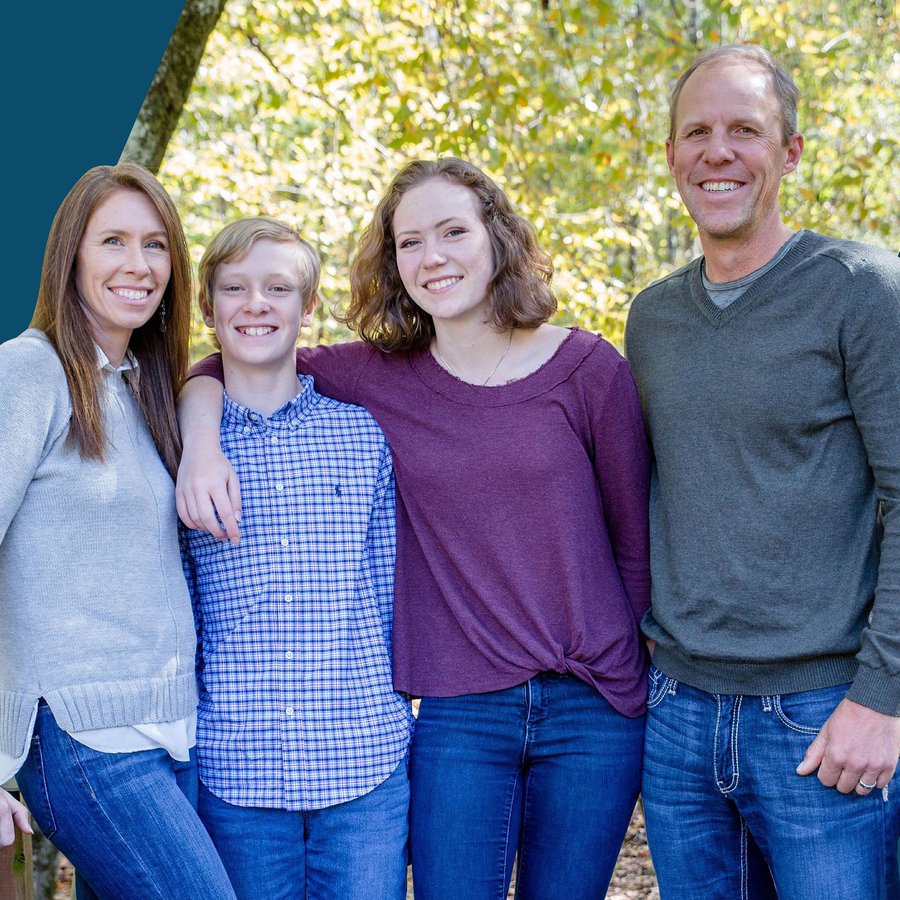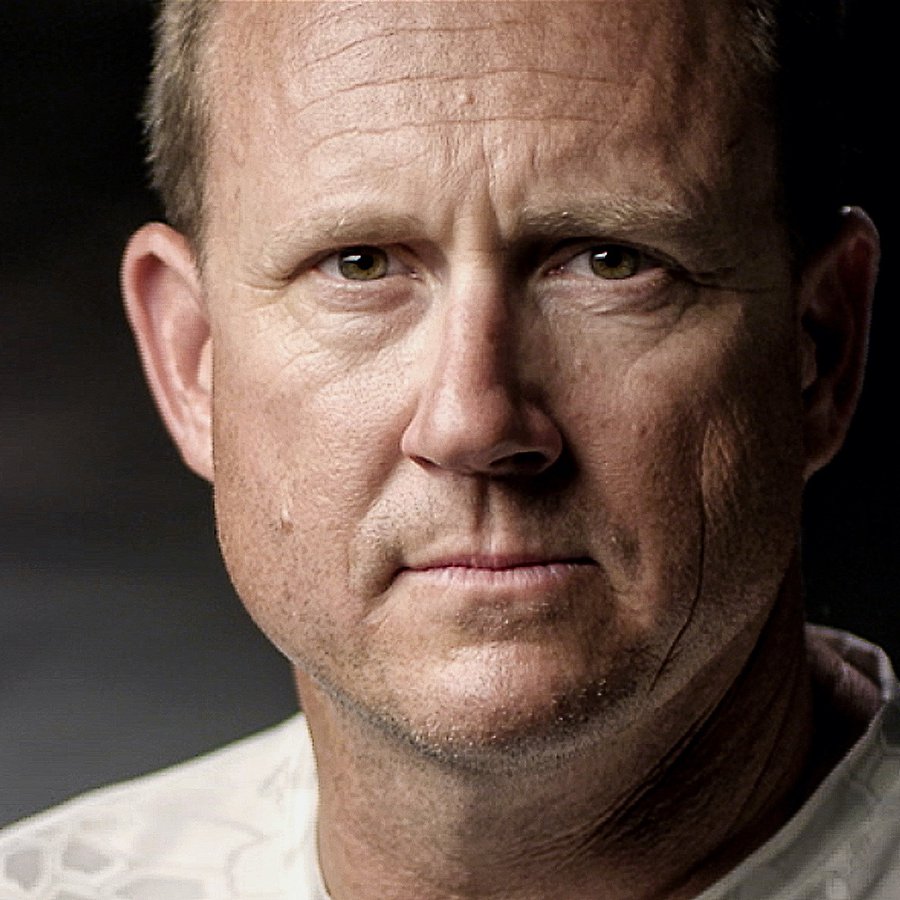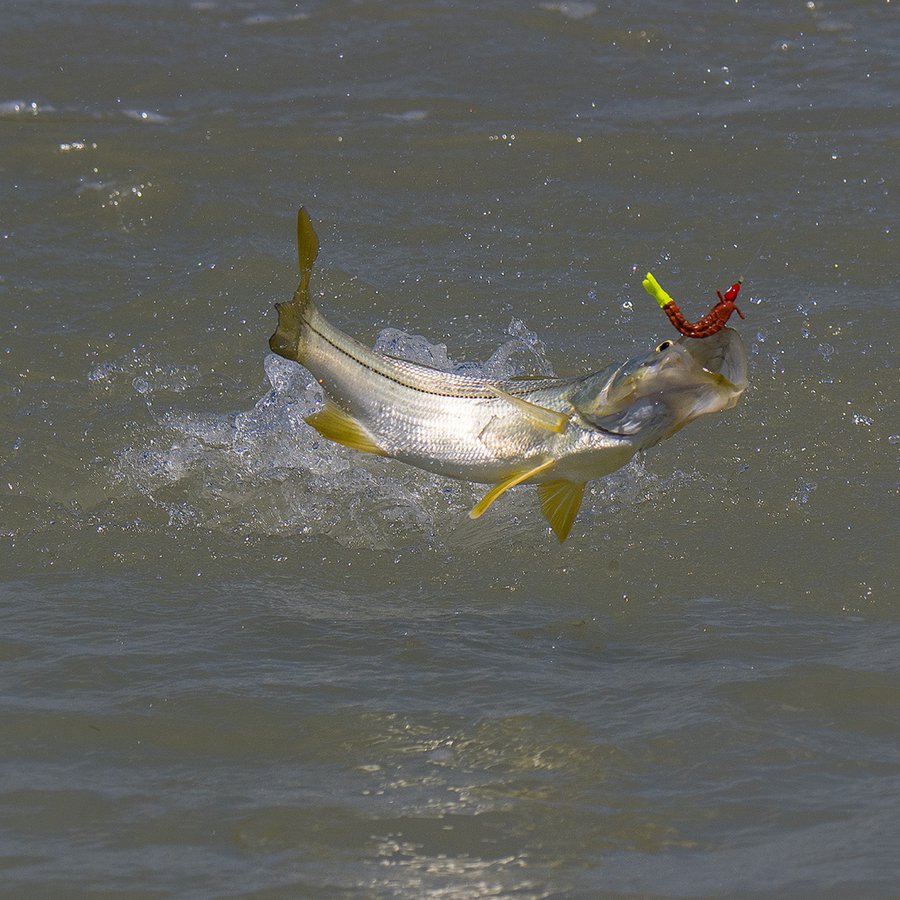Growing up in the home of a Mercury Pro Team member has its advantages. Not surprisingly, the biggest is having the opportunity to be around the water a lot as a kid, but there’s more to it than that. For some families, spending time together fishing is an intrinsic part of life.
We asked three Mercury Pro Team members about their experiences raising children who love to fish and compete in tournaments to get a glimpse into what it’s like to be part of a pro-fishing family.
Where do you live, and how old are your kids?
Mark Zona, host of “The Bassmasters” and “Zona’s Awesome Fishing Show”: We live in Sturgis, Michigan, and my twin boys are Hunter and Jakob, 20.
Chris Lane, 2012 Bassmaster Classic champion and Major League Fishing Bass Pro Tour angler: We live in Guntersville, Alabama. Our boys are Cal, 18, and Coleman, 9. The girls are Hunter, 17, and Hannah, 14.
Marty Robinson, Toyota Series champion and Major League Fishing Bass Pro Tour angler: We live in Lyman, South Carolina. My boys are Marshall, 17, and Mitchell, 15.
What are your children fishing currently?
Zona: My boys are on the Michigan State University Fishing Club and fish a lot of adult tournaments here in Michigan.
Lane: Cal fished the Southeastern Division of the Toyota Series in 2020 and made the championship. He finished sixth in the Angler of the Year standings. He’s hopefully going to be fishing the Major League Fishing BIG5 in 2021. Hunter loves to fish and really enjoys being in the outdoors. Hannah likes to go if the fish are really biting. Coleman just loves it and fishes constantly.
Robinson: My boys are both fishing the Palmetto Boat Center High School Tournament Trail here in Greenville, South Carolina. Mitchell and his partner won their state championship this year on Lake Murray.
What’s your involvement with their fishing?
Zona: Nothing right now directly. Growing up, we fished five days a week together at a minimum. We talk about fishing a lot, but I’ve let them go on their own now. We still take a smallmouth trip or two, but now they either fish together or with their buddies.
Lane: I take them with me when I’m going close to home and if they’re around. I was Cal’s boat captain a few times when he was in high school, but my dad was the boat captain most of the time. He would drive a long way up from central Florida to meet up with Cal. He would make every effort to be the boat captain if I couldn’t do it. That was one of the neatest things about Cal’s high school fishing career.
Robinson: I am the boat captain for Marshall’s team and go with them to practice a lot. My buddy Tommy Abbott captains his son, Cody, and my son Mitchell’s team.
Did you have a strategy for getting your kids interested in fishing?
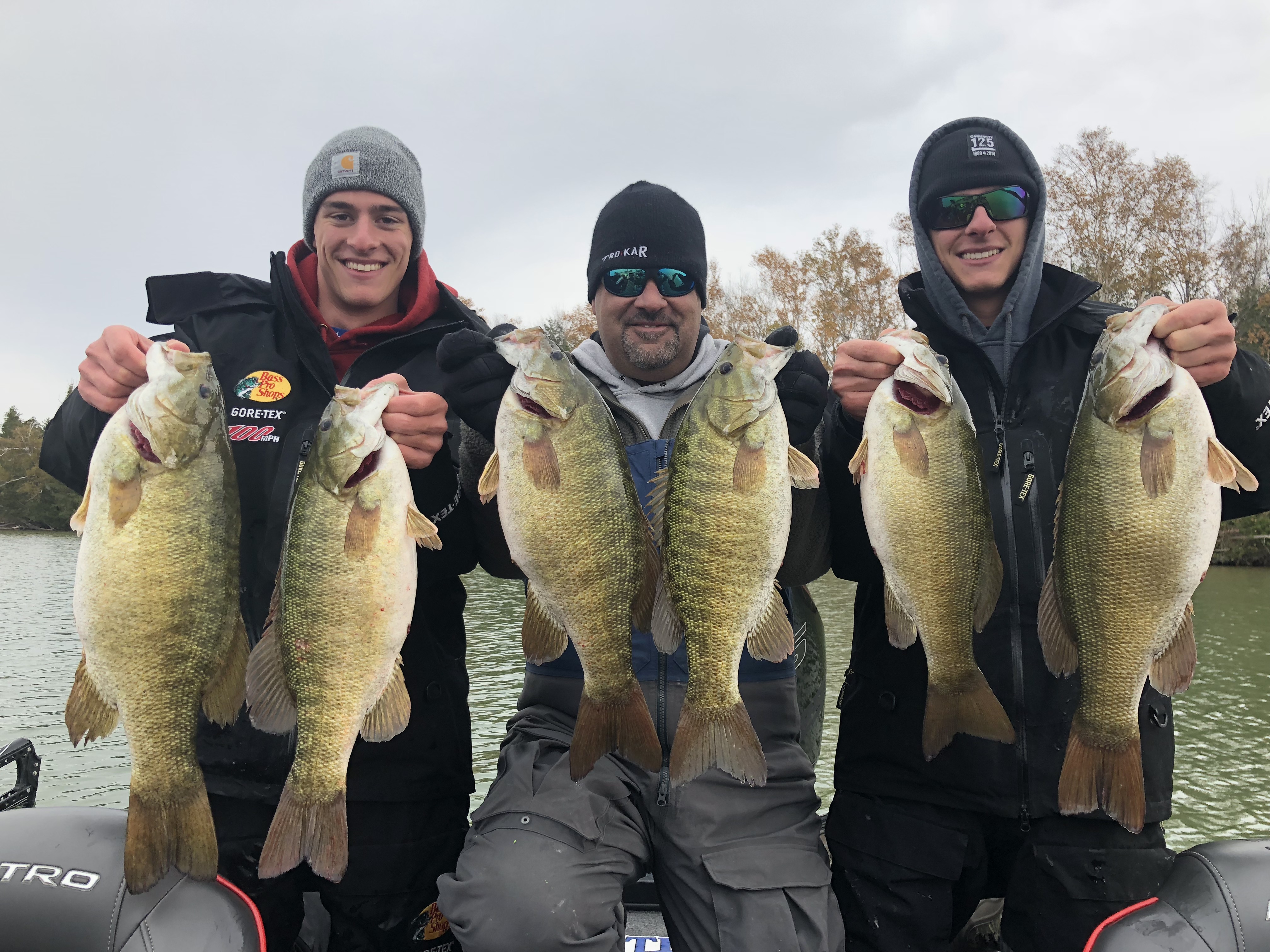 Zona: They have been around fishing their entire life, whether it was because of my job or where and how they grew up. All they did was fish. They fished tournaments with me before they could drive, and then they fished tournaments together. They grew up around it, so they had chances to learn from the Kevin VanDams and Greg Hackneys and Aaron Martens of the world. I’m not sure they realize how amazing that was.
Zona: They have been around fishing their entire life, whether it was because of my job or where and how they grew up. All they did was fish. They fished tournaments with me before they could drive, and then they fished tournaments together. They grew up around it, so they had chances to learn from the Kevin VanDams and Greg Hackneys and Aaron Martens of the world. I’m not sure they realize how amazing that was.
I tried not to force fishing on them, even though it was all we did. When they were done at the end of the day as little dudes, I had to program myself not to go daylight-to-dark. I had to let them be done when they were done.
This may sound crazy, but I purposely did not take them to the best lakes when we started out. I did not want to take them to do that until they were teenagers. I wanted them to have some bad days so that they would appreciate the good days more. If I had taken them to Lake St. Clair or northern Michigan, it would have destroyed them. The lakes I taught them on were lakes where they would really learn how to fish.
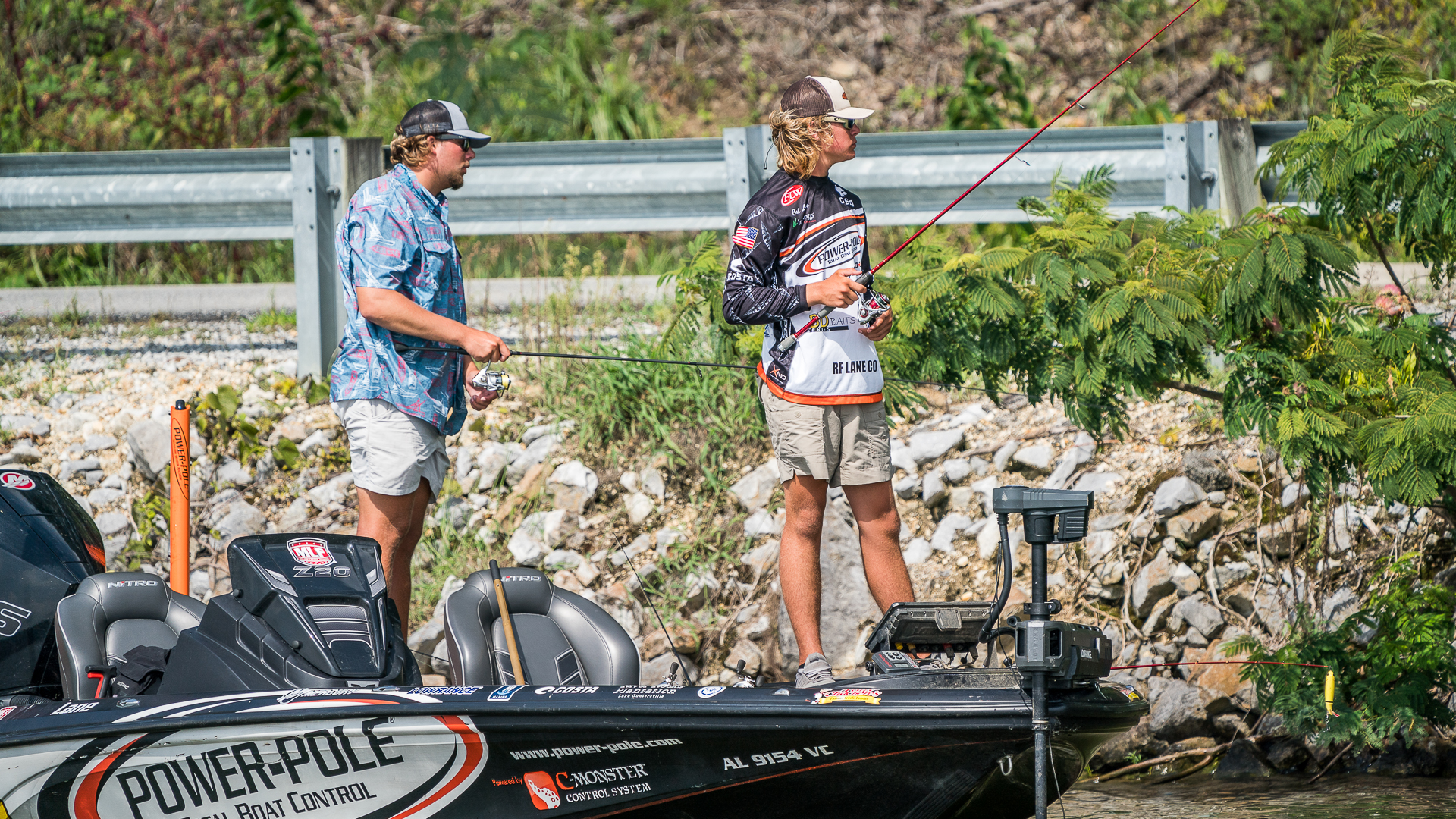 Lane: There was no strategy. It was just taking them with us. I would ask Hannah if she wanted to go. If she said, “No, I am good,” Coleman or Cal would be all-in. Living by the water (Lake Guntersville) allowed them to have access at a young age. We had a johnboat or kayak that the kids could use, and they loved that. We started out catching bream and catfish. Coleman loves that still.
Lane: There was no strategy. It was just taking them with us. I would ask Hannah if she wanted to go. If she said, “No, I am good,” Coleman or Cal would be all-in. Living by the water (Lake Guntersville) allowed them to have access at a young age. We had a johnboat or kayak that the kids could use, and they loved that. We started out catching bream and catfish. Coleman loves that still.
Note: Lane hosts an annual kids fishing camp each Memorial Day weekend in Guntersville, Alabama. The 2021 camp will be the 14th iteration. Like each year, up to 200 kids will learn about fishing and take home a rod and reel and tackle pack.
Robinson: When the kids were little, they traveled to the tournaments with Iris (wife) and me. They also traveled with us in the summer as they got to school age. Iris took them fishing, let them play in a creek, go kayaking or trout fishing so that they would be around the water a lot. After the tournament was over, we stayed and fished that lake or another lake nearby. They got to see a lot of different bodies of water, and that may have kept them interested.
What are their future fishing goals at this point?
Zona: I can see one or both of them potentially in the industry, but I can also see them not going that direction. I would have said three years ago there was no doubt about it, but now I don’t know. Karin (wife) and I hope they utilize what they have learned in the outdoors and also what they are going to school for. But I do know they will be on the water.
Lane: Cal’s goal is to go out there and beat his dad and his uncles. He wants to compete against the best guys on tour. He loves being a part of it. Coleman loves golf too, so I’m not sure what his route will be. All Cal ever wanted to do was fish. Fishing will always be a part of Hunter’s and Hannah’s life, I think.
Robinson: Marshall definitely wants to fish in college. Mitchell is a little different, and he might just start fishing the BFLs (Phoenix Bass Fishing League) or something like that. They both talk about wanting to be professionals someday. They both also want to be licensed plumbers, like me, on the side so that they can pay for it. Right now, when they aren’t fishing or in school, I make them work. They’re good workers, too. Plumbing has been good to me, so I am good with that plan. They seem to like plumbing, which surprises me.
Why are you thankful that your kids fish?
Zona: Fishing was my world at their age. Fishing was everything that was right, and it still is to me today. Besides getting married and having children, all my best memories are from fishing.
When you can fish as a family, that’s a special thing. I know when my kids are fishing, they are in the right place.
Also, I challenged them to get other kids involved in fishing that might not ever have done so. I think that is critical. I wanted them to pass it on, and they have done that. We lived on a lake so they could have kids over, and they still do that today. My dad passed it on to me, and I’m thankful to have passed it along to them and to see them passing it along. That’s what this is all about.
Lane: Because it keeps them off the video games. It was easy to tell them to turn their screens off and just take them out to the lake and play a real game.
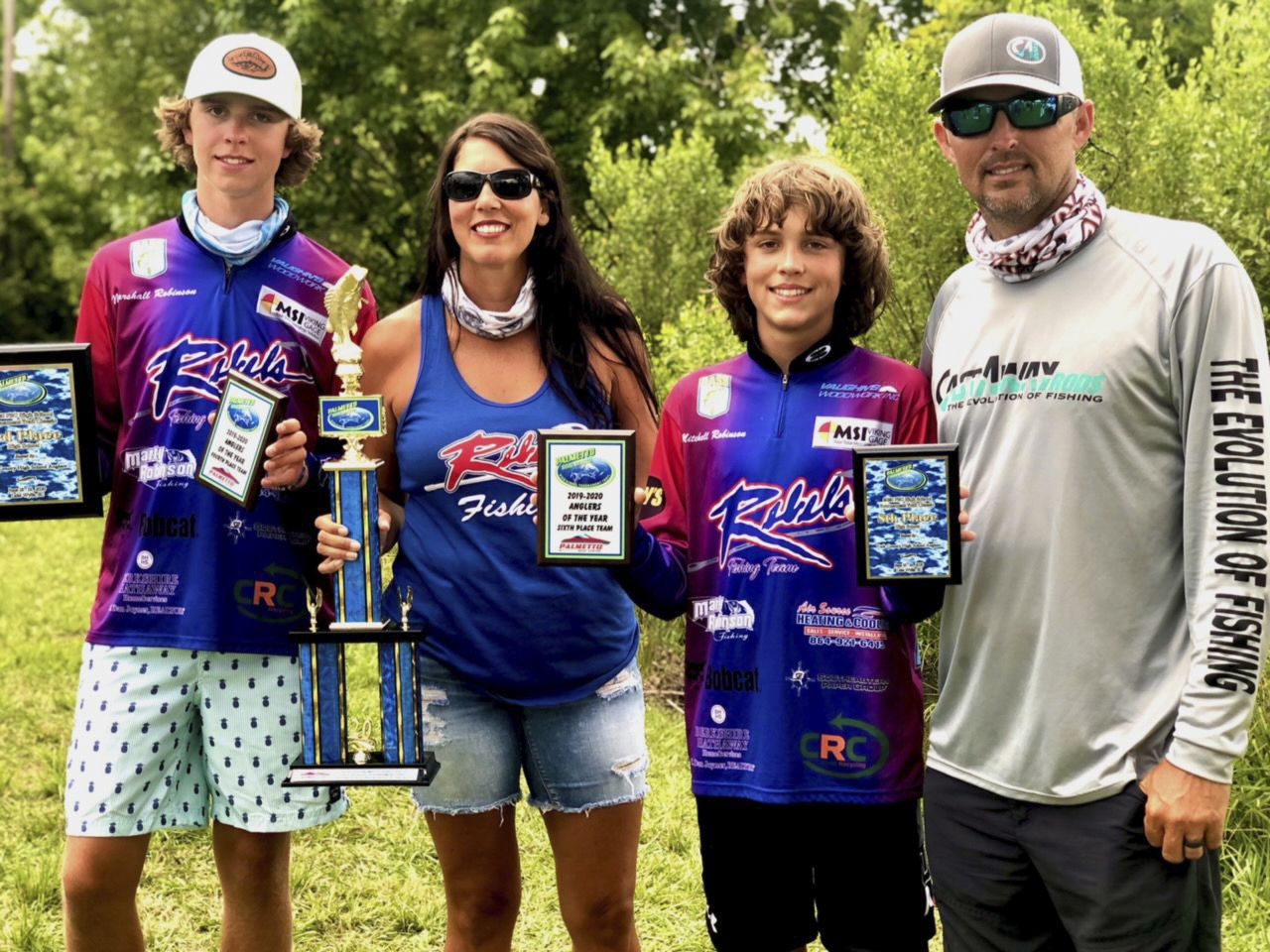 Robinson: It’s been the greatest thing that’s ever happened to them and our family. It has kept them occupied. There is no “Where are we going. What are we going to get into?” on the weekends. Friday nights, they are working on tackle, and Saturdays, they are practicing or fishing a tournament. That’s pretty much every week.
Robinson: It’s been the greatest thing that’s ever happened to them and our family. It has kept them occupied. There is no “Where are we going. What are we going to get into?” on the weekends. Friday nights, they are working on tackle, and Saturdays, they are practicing or fishing a tournament. That’s pretty much every week.
It was the opposite for me. I was trying to see what I could get into on Saturday nights. I loved fishing but didn’t really get into tournament fishing until after I got out of high school. They didn’t have high school fishing back then. So we are very thankful for that.
Have they taught you anything up until this point?
Zona: Yes, they have. They have a much different demeanor than me. They are much calmer. I fish 9,000 miles an hour, as you see on my television show. I thought at one point maybe we got the wrong twins at the nursery. They have a very slow, calm demeanor and have taught me that. That’s one of the reasons they have been successful, too.
Lane: Cal has taught me a lot about patience. Growing up in the competitive world of fishing, I go as hard as I can. With Cal, he understands the patience side of it much better.
Robinson: They have taught me a ton. That’s one of the most fun parts of going fishing with them now. Mitchell will watch YouTube videos that he tries when we are fishing. Marshall has great instincts on the water at a young age that I didn’t; things that come naturally to him that I had to beat into my brain.
They’ve also taken the time to learn about why fish are where they are. They’ve honed their instincts from being around the water all their lives. One time we were on Kentucky Lake, and Marshall asked me to take him to a bank and caught a 3-pounder. He said the bass were eating bream that were there eating mayflies that had hatched. I never even saw the mayflies until he said something. He had the whole food chain figured out.








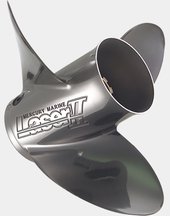
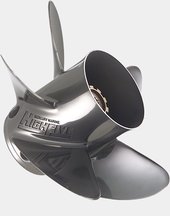



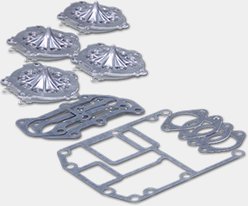
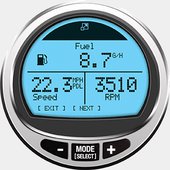



 Zona: They have been around fishing their entire life, whether it was because of my job or where and how they grew up. All they did was fish. They fished tournaments with me before they could drive, and then they fished tournaments together. They grew up around it, so they had chances to learn from the Kevin VanDams and Greg Hackneys and Aaron Martens of the world. I’m not sure they realize how amazing that was.
Zona: They have been around fishing their entire life, whether it was because of my job or where and how they grew up. All they did was fish. They fished tournaments with me before they could drive, and then they fished tournaments together. They grew up around it, so they had chances to learn from the Kevin VanDams and Greg Hackneys and Aaron Martens of the world. I’m not sure they realize how amazing that was. Lane: There was no strategy. It was just taking them with us. I would ask Hannah if she wanted to go. If she said, “No, I am good,” Coleman or Cal would be all-in. Living by the water (Lake Guntersville) allowed them to have access at a young age. We had a johnboat or kayak that the kids could use, and they loved that. We started out catching bream and catfish. Coleman loves that still.
Lane: There was no strategy. It was just taking them with us. I would ask Hannah if she wanted to go. If she said, “No, I am good,” Coleman or Cal would be all-in. Living by the water (Lake Guntersville) allowed them to have access at a young age. We had a johnboat or kayak that the kids could use, and they loved that. We started out catching bream and catfish. Coleman loves that still. Robinson: It’s been the greatest thing that’s ever happened to them and our family. It has kept them occupied. There is no “Where are we going. What are we going to get into?” on the weekends. Friday nights, they are working on tackle, and Saturdays, they are practicing or fishing a tournament. That’s pretty much every week.
Robinson: It’s been the greatest thing that’s ever happened to them and our family. It has kept them occupied. There is no “Where are we going. What are we going to get into?” on the weekends. Friday nights, they are working on tackle, and Saturdays, they are practicing or fishing a tournament. That’s pretty much every week.